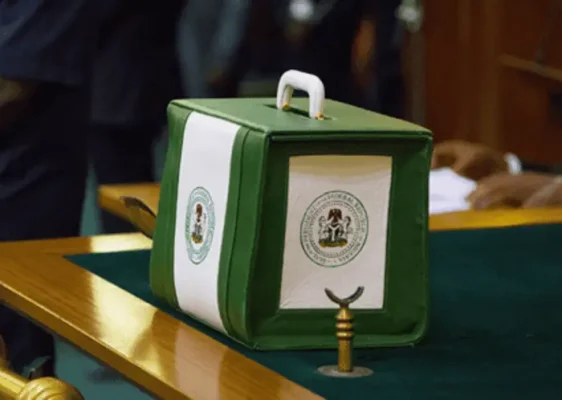While Nigeria boasts of Africa’s biggest economy, its proposed 2024 budget pales in comparison to several of its peers on the continent.
President Bola Tinubu will on Wednesday (today) present the 2024 budget of N27.5 trillion ($33 billion) to the National Assembly.
This move comes as part of a strategic response to changes in the global oil market and the country’s economic trajectory. The adjustments, which include an increase in the oil price assumption, are designed to address Nigeria’s financial needs amidst the volatility in the price of oil — a major source of revenue for the nation.
Findings by BusinessDay showed Nigeria has a smaller national budget compared to African peers like South Africa, Algeria, Egypt and Morocco, although these countries have fewer citizens.
While Nigeria’s 2024 budget amounts to $33 billion, South Africa, with a population almost three times smaller, planned to spend $132 billion on its citizens this year; Algeria, with a smaller population of 44 million, budgeted $98 billion; and Egypt has a $97 billion budget for 109 million people.
“Time to end the unproductive ‘Nigeria is a rich country’ myth. Nigeria is a poor state that mismanages the modest resources it has,” Remi Adekoya, a lecturer at the University of York said on X, formerly Twitter.
Read also: Nigeria’s 2024 budget is hallucinatory
Apart from African countries, countries like Bangladesh, Turkey and Vietnam also have larger budgets than Nigeria.
Bangladesh has a $71 billion budget for its 169 million people; Indonesia, $216 billion; Turkey, $239 billion; Netherlands, $496 billion; and the UK $1.5 trillion.
“Focus going forward must be on wealth creation, not wealth sharing, as there is very little to share in the first place,” Adekoya said.
Olaolu Boboye, a senior analyst at CardinalStone Partners, said the issues facing Nigeria are quite numerous, low human capital development, high unemployment rate, low productivity and all these show that Nigeria has a lot of challenges.
“Nigeria’s current spending is not adequate because the budget is not designed to solve Nigeria’s economic problem,” Boboye added.
Adeola Adenikinju, a professor of economics and president of the Nigerian Economic Society, advised Nigeria’s economic managers to shift away from so much dependence on debt to other sources of financing investments to increase the country’s budget.
“We need to explore how to bring in other economic actors, investors from the private sector to participate in driving the economy and not just borrowing,” Adenikinju said.
BusinessDay’s analysis showed the Federal Government plans to spend 61.63 percent of its proposed 2024 budget on personnel and debt service costs. The personnel and pension costs of N7.78 trillion and the debt service cost of N8.25 trillion add up to N16.03 trillion
“Nigeria has one of the highest mortality rates in the world and we must spend money on the health, social sector and education. We must move a lot of resources there because that will define us in the future,” Adenikinju said.
Many have berated Nigerian politicians who live lavish lifestyles. The billions of naira allocated for SUVs and other items in the 2023 supplementary budget sparked anger and criticism from citizens in one of the world’s poorest countries.
Read also: Tinubu to present 2024 budget to National Assembly on Wednesday
“In every state, there are a few dozen people (usually involved in politics) who possess such visibly stupendous wealth; we can be forgiven for assuming there is a lot more where that came from. Thing is, there isn’t,” Charles Akinbobola, an analyst at Sofidam Capital, said.
The National Assembly recently confirmed that more than 460 federal lawmakers will each get SUVs — reportedly worth more than $150,000 each — which, they said, would enable them to do their work better.
“All of this speaks to the gross insensitivity of the Nigerian political class and the growing level of impunity we have in the country,” Oluseun Onigbinde, who founded Nigerian fiscal transparency group BudgIT, said in a note.
The allocations reminded many Nigerians of the economic inequality in a country where politicians earn huge salaries while essential workers like doctors and academics often go on strike to protest meagre wages.
Such steep expenditure on cars in a country where surging public debt is eating up much of the government’s dwindling revenues shows its “lack of priorities” and raises questions about the lack of scrutiny in the government’s budget process and spending, said Kalu Aja, a financial analyst.
Government spending has come under increased scrutiny, especially considering the worsening economic challenges in the country. Recently, Funso Doherty, the governorship candidate of the Action Democratic Congress in Lagos, called out the Lagos State government (LASG) for how it was spending public funds. This has since been met with public outcry.
In a letter to the government, he wrote: “I have had the opportunity to go through the register of public procurement awards by LASG, its ministries, and Department Agencies for the second and third quarters of 2023, as reported by the Public Procurement Agency.
Read also: Senate approves new budget framework, targets fiscal responsibility
“This attached schedule highlights selected awards which, in my opinion, require greater scrutiny.”
Data from BudgIT showed that 36 states of the federation have spent N1.71 trillion on recurrent expenditures including allowances, foreign trips, office stationery, aircraft maintenance, and more in the first nine months of 2023.




